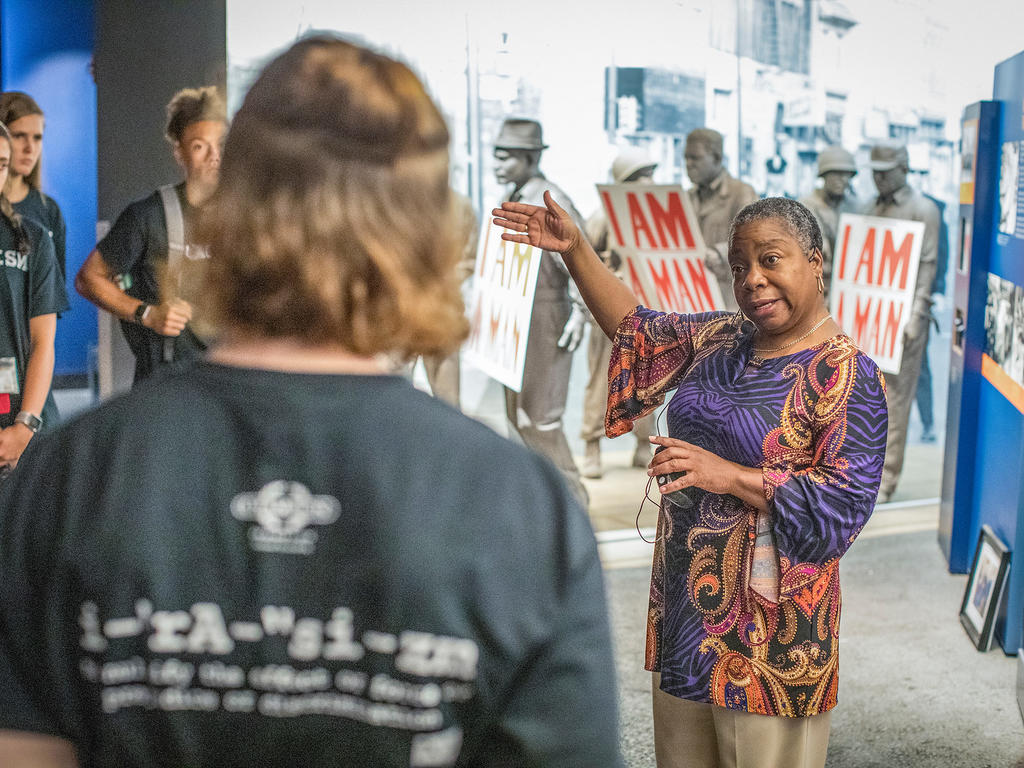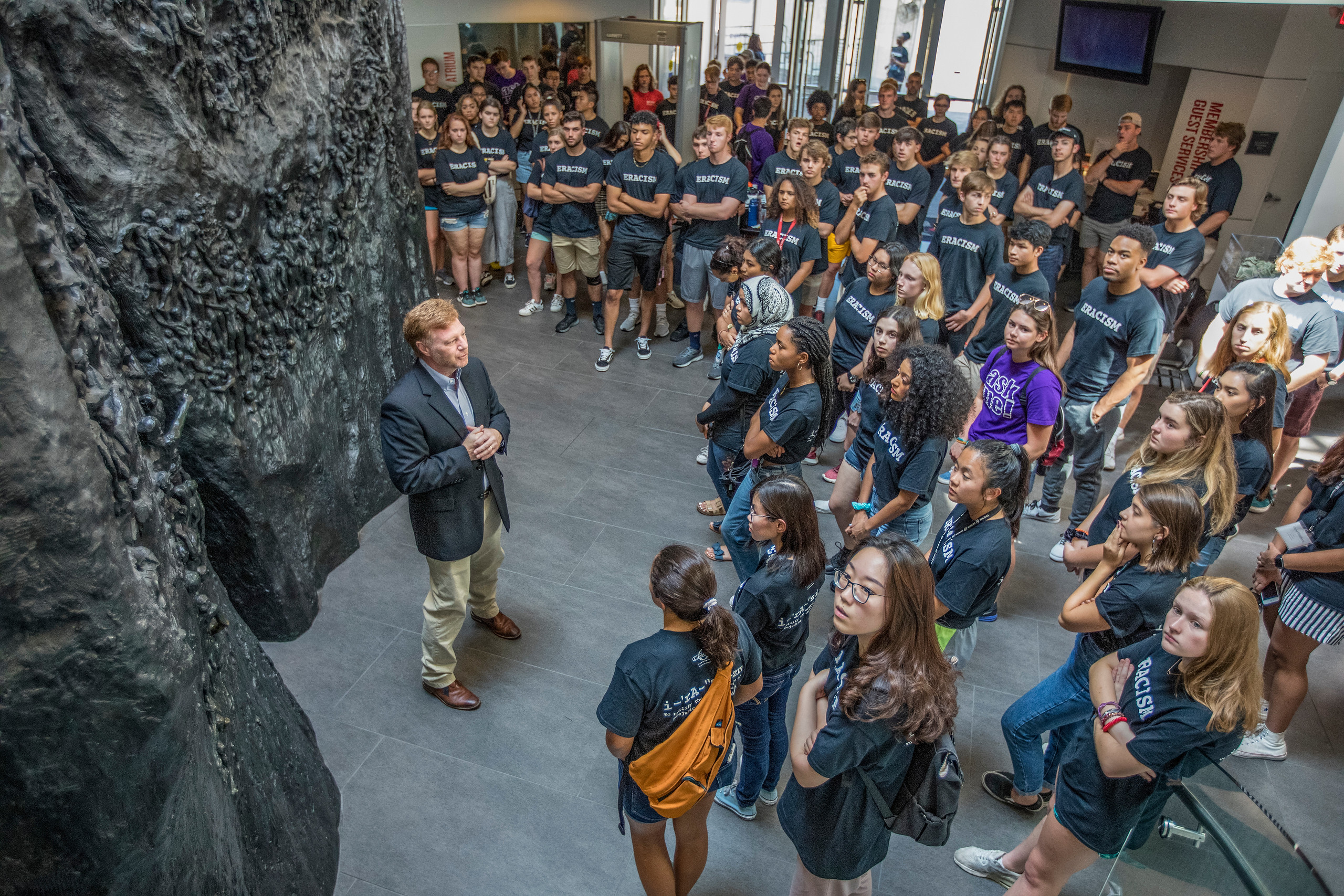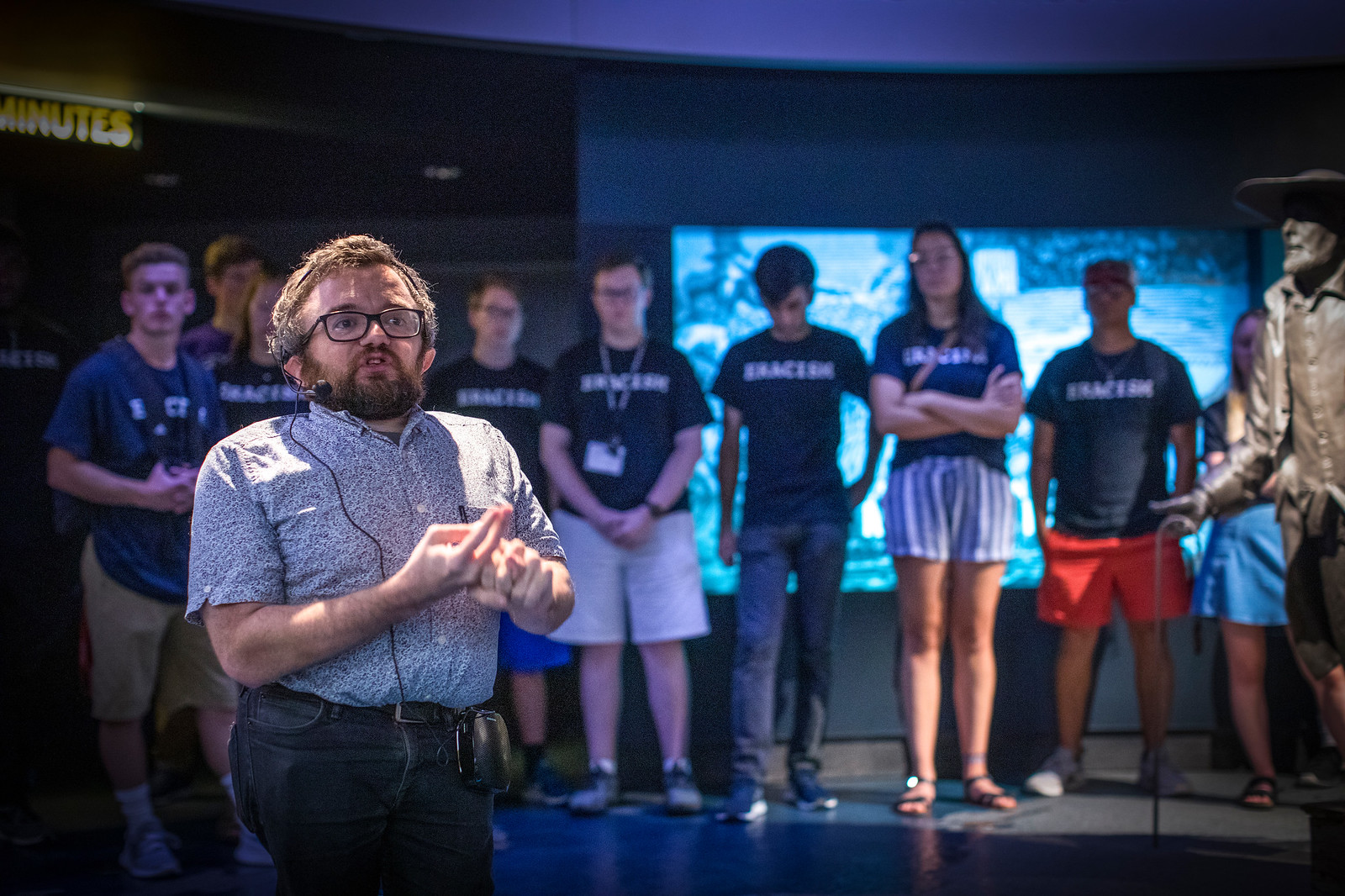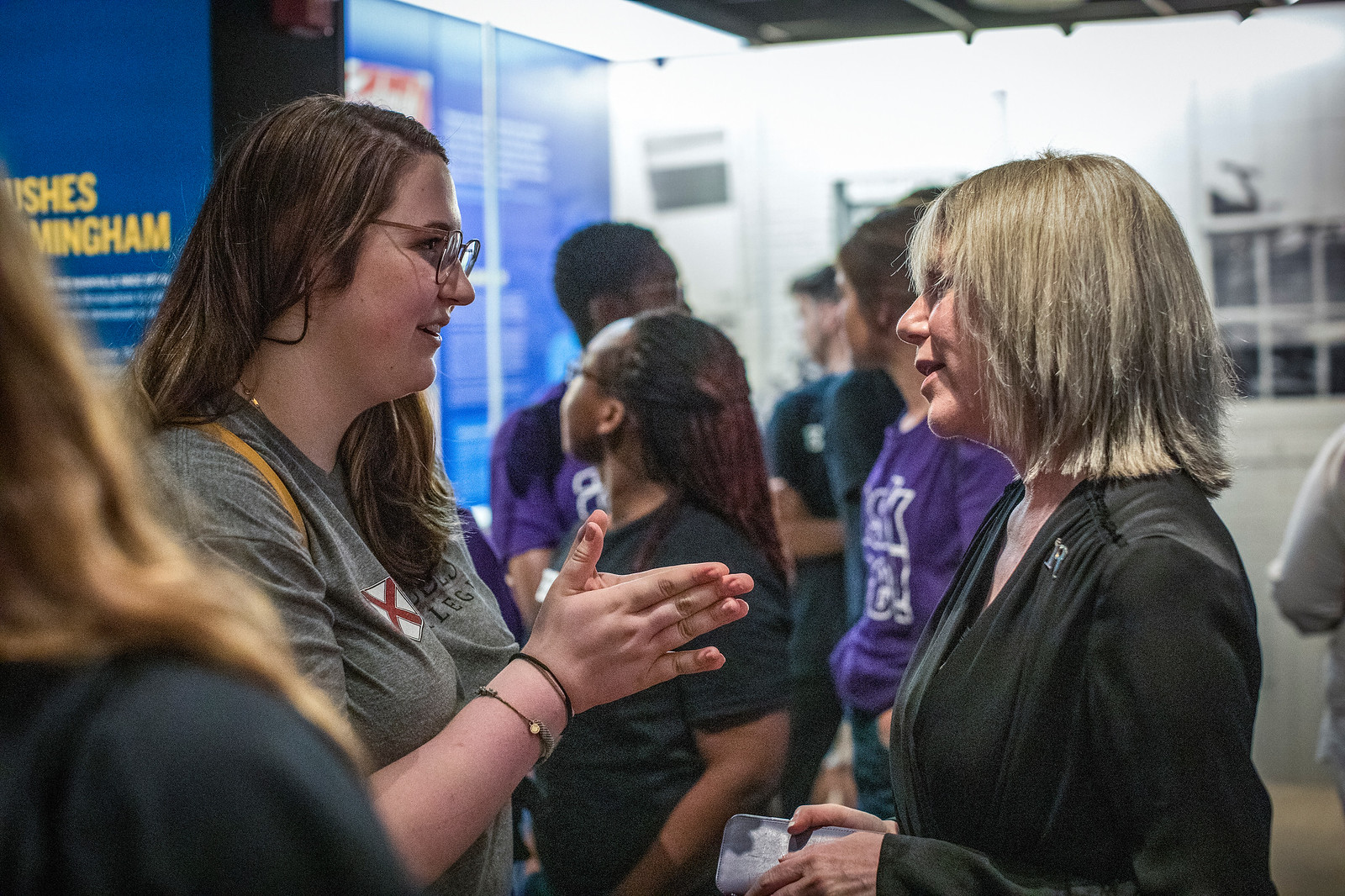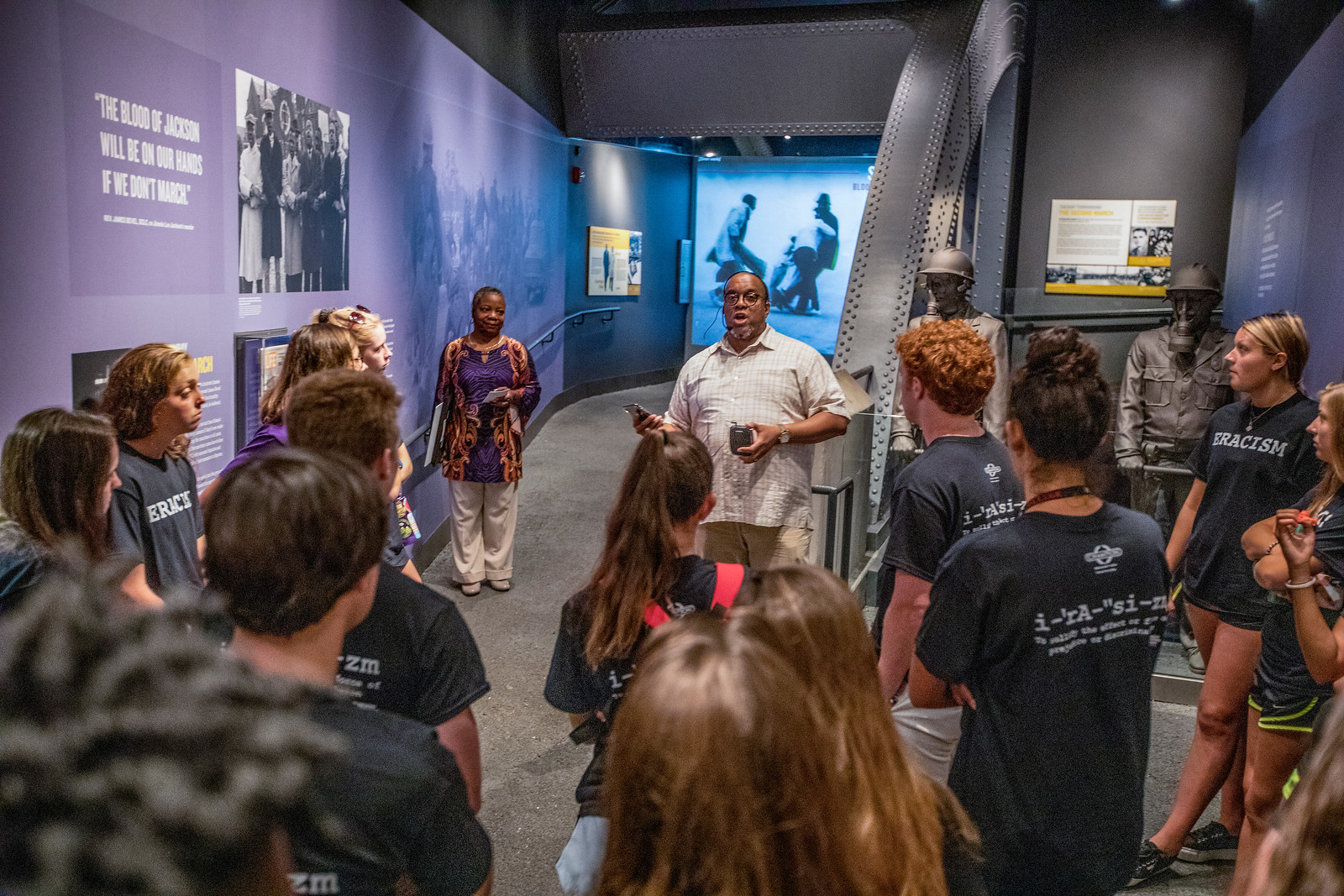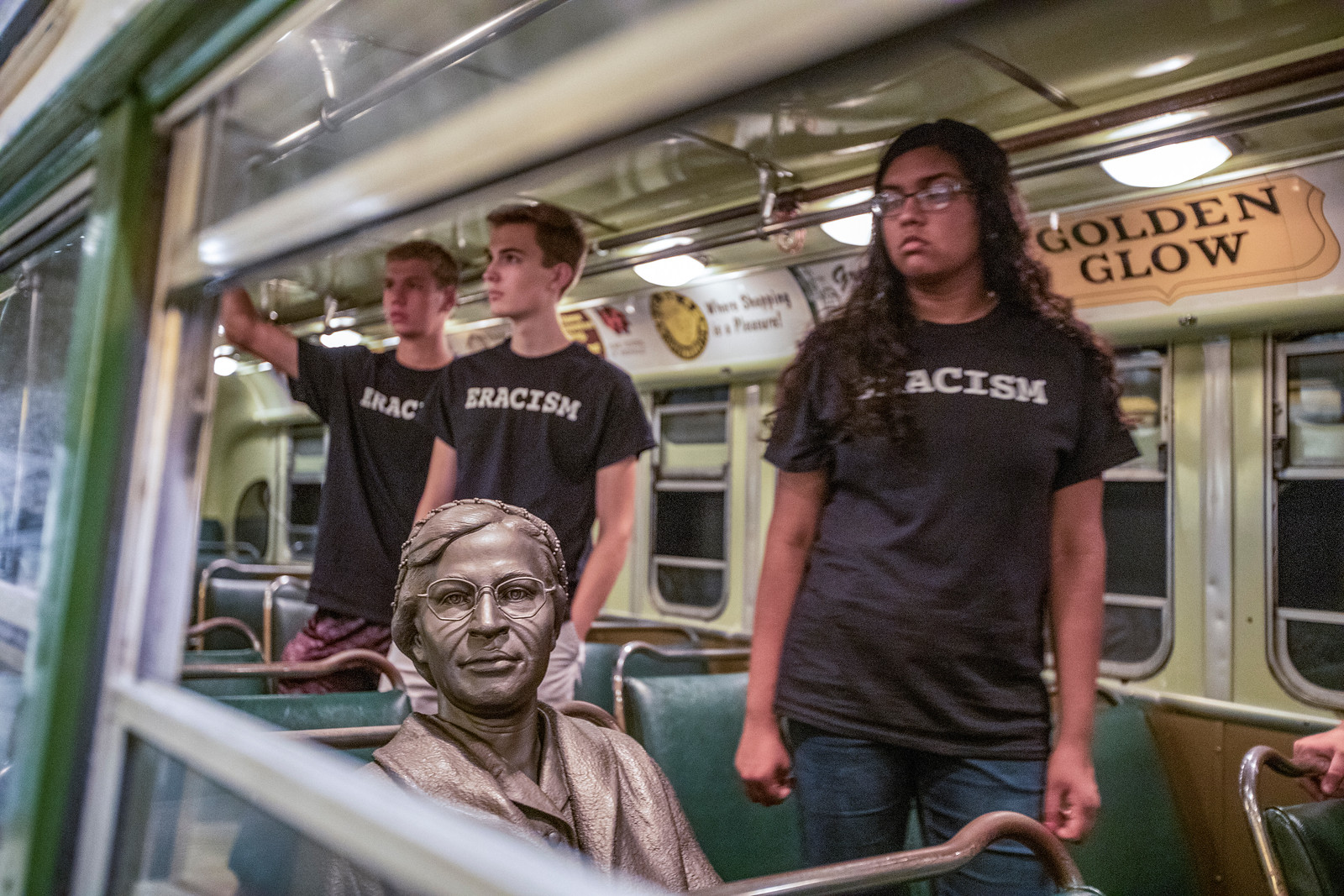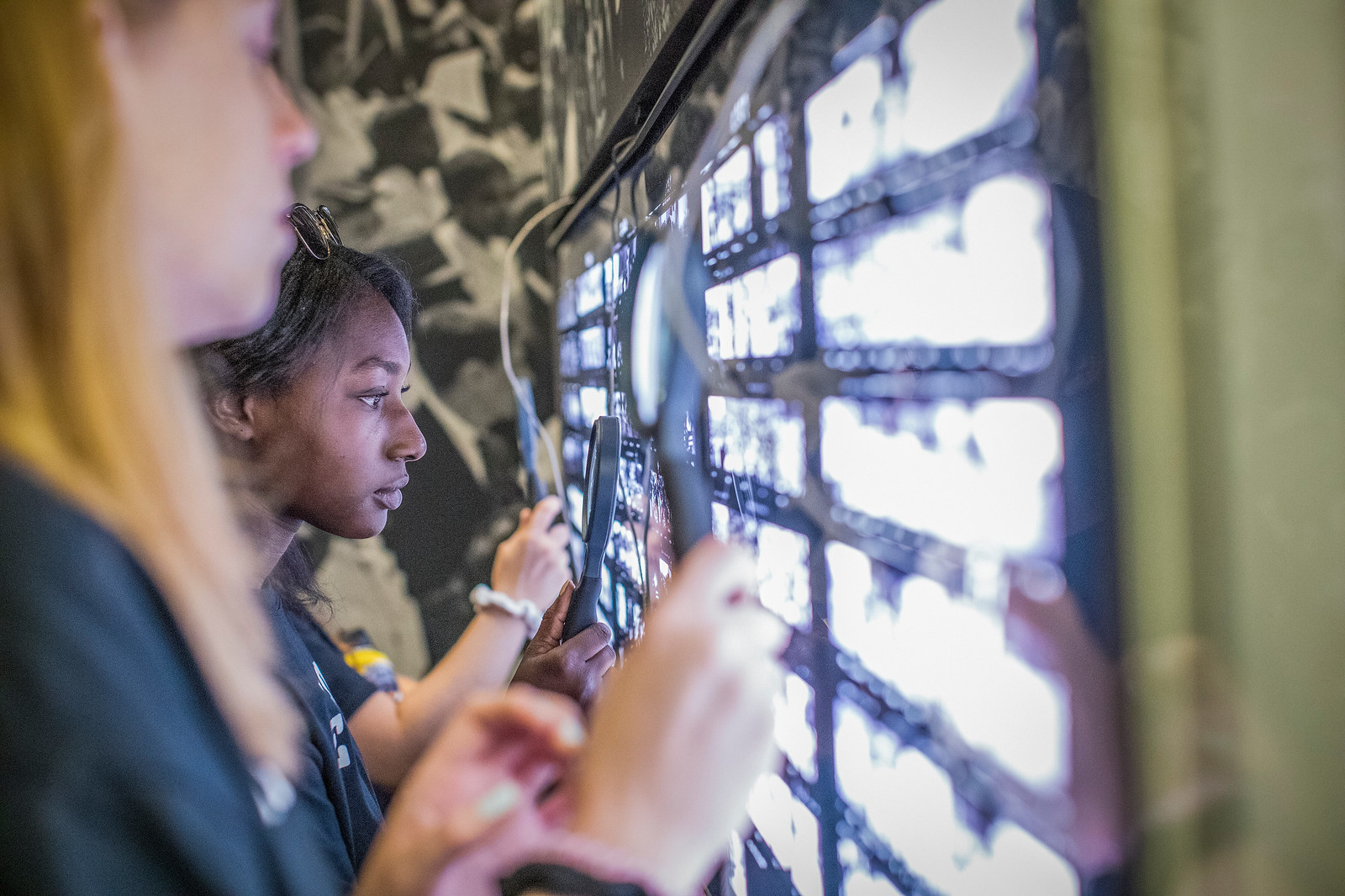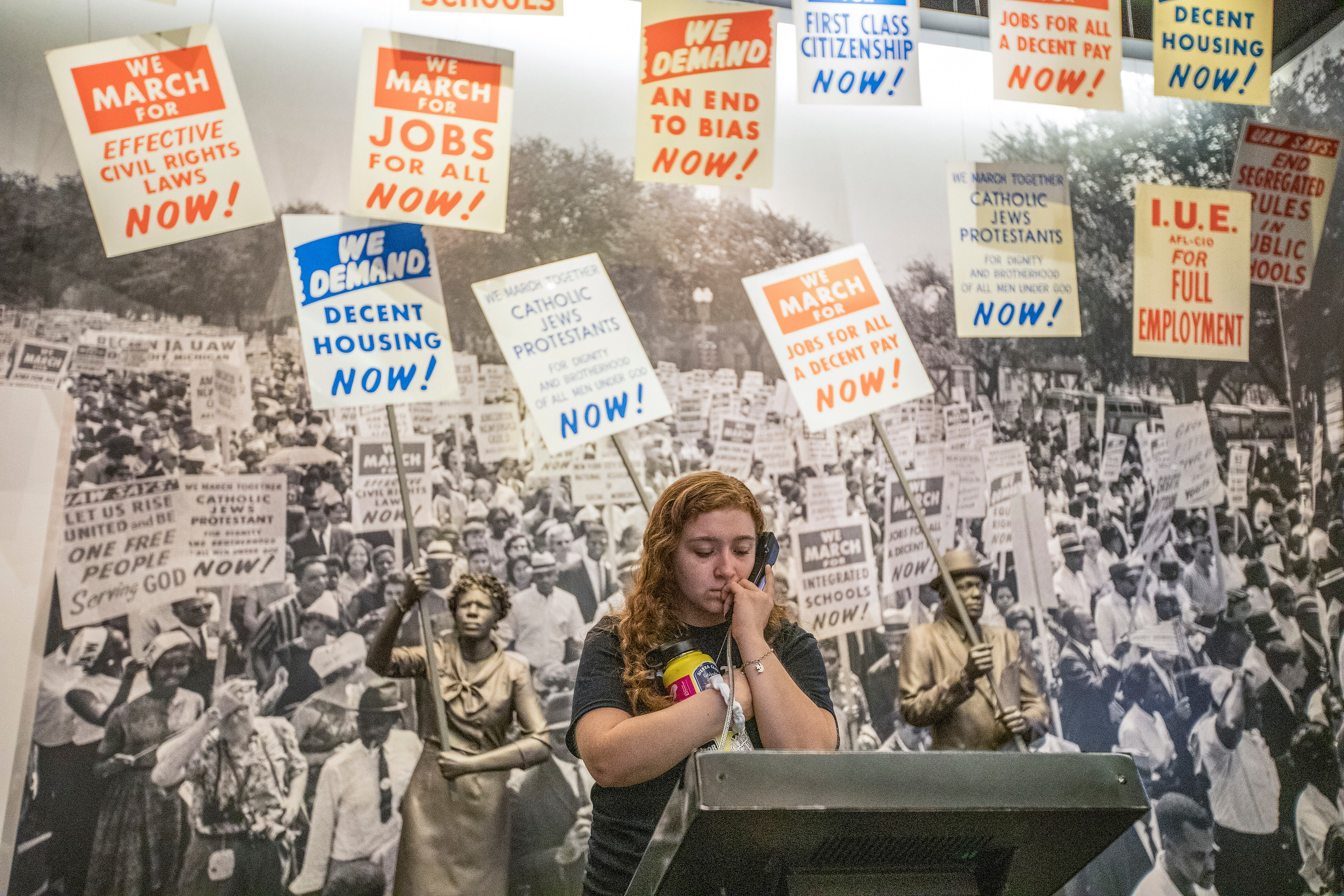With the Class of 2023's visit on August 20, all four classes of students currently studying at Rhodes have now begun their Rhodes career with a visit to Memphis' National Civil Rights Museum. The experience comes on the last day of Welcome Week activities and is part of the first-year experience, a year-long, integrative program for new students that is designed to ensure their success. Classes at Rhodes begin Wednesday, August 21.
"The museum visit helps our students understand the way the past informs the present. They return from the museum inspired and able to engage more deeply in conversations about how we build community. We are now in the fourth year of this program, and it has had a transformational effect on our campus," says Rhodes President Marjorie Hass.
Dr. Charles Hughes, director of the Lynne and Henry Turley Memphis Center, began the tour of the museum by noting that today marks the 400th anniversary of enslaved Africans touching soil in Virginia, which is considered by many to be the beginning of African American history. Throughout the museum, which spans the history of chattel slavery to the assassination of Dr. Martin Luther King, Jr., faculty supplemented the exhibits with lectures on African American history, Brown vs. Board, the Selma to Montgomery march, the Sanitation Workers' Strike, and the life and work of Dr. King.
The students, whether from the Memphis area or from across the country, say they learned something new about civil rights, racism, and Memphis’ role in history.
Reggie Matthews ’23, who is from Memphis, had been to the museum before, but said this experience was unique.
“I’m glad to learn more about the sanitation workers and connect it all to Memphis. The professors connecting the history back to Memphis made me realize how much of an impact it had. Before this, I didn’t even know why Martin Luther King had come to Memphis,” Matthews says.
First-years Addison Horton ’23 and Maya Ring ’23 both say they appreciate the opportunity to connect to the city as part of their Rhodes education and to share this experience with their entire class.
“I think it is very beneficial that it is right off the bat and we did it as a class. We are a very diverse class, and it is great to see people that have come from different backgrounds have similar reactions and start conversations,” says Horton.
Ring says this has encouraged her to think more about her engagement with Memphis going forward.
“It connects us to the greater Memphis community. It could be easy to just be focused on Rhodes; but, instead, we can be connected and try to learn more and give back over our four years,” Ring says.
Hughes, who has participated in guiding the first-year students' visit to the museum through all four years, says that it is a vital component of the Rhodes education that serves as a basis for conversations throughout their college experience.
"The really great thing about the National Civil Rights Museum is that, at the very beginning of their time at Rhodes, they have a shared experience that absolutely comes back over the course of their time at the college," Hughes says.
"In classes that I teach, I have numerous times had students reference the museum visits or bring up questions or topics they have. It's just really clear that not only is it giving them this wonderful experience, but also giving them some language and some shared ideas that come up in their time at college, no matter their major or their plans for after they graduate."
The experience is made possible by the generosity of Riea and Steve Lainoff.
